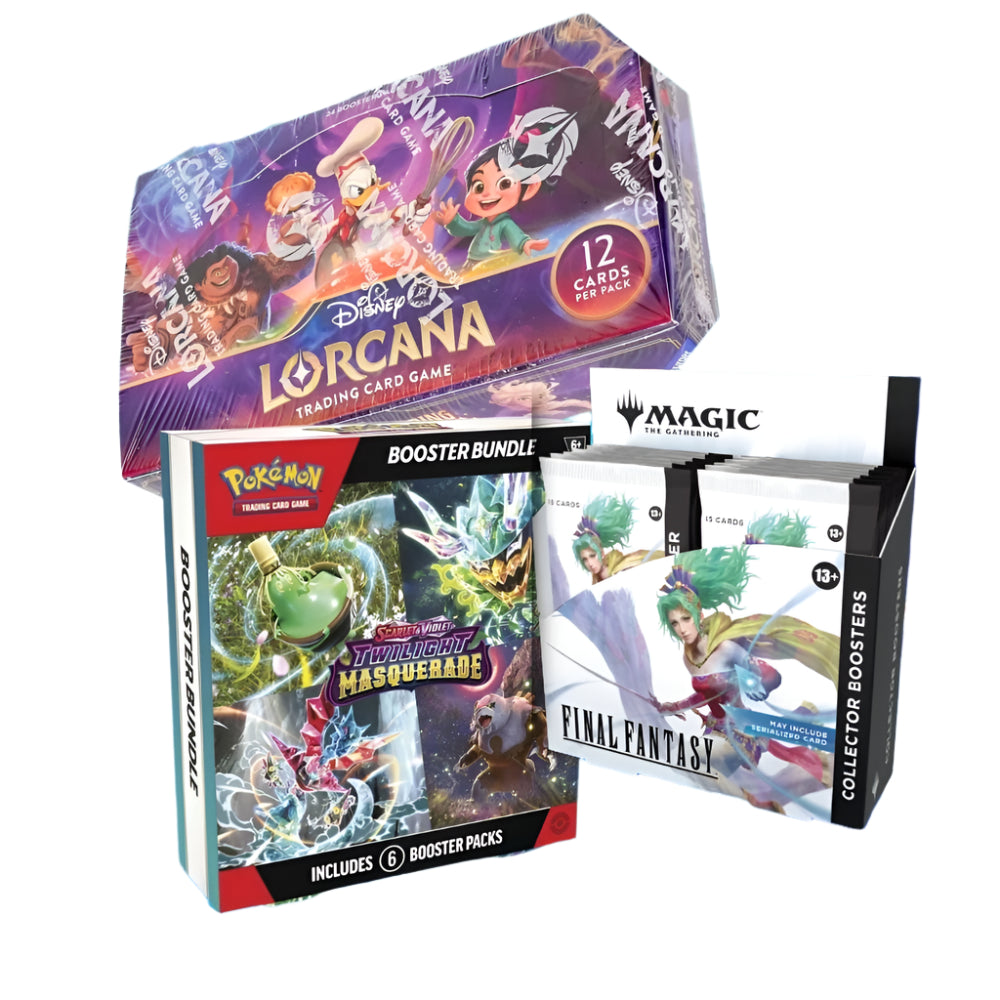Loading products...
MTG: Avatar The Last Airbender Play Booster Box

MTG Universes Beyond Final Fantasy Play Booster Box

MTG: Edge of Eternities Collector's Booster Box

MTG: Avatar The Last Airbender Collector Box

MTG Marvel Spider-Man Pre-Release Kit

MTG: Edge of Eternities Prerelease Pack
MTG: Phyrexia All Will Be One Set Booster Box

MTG: Universes Beyond- Marvel Spider-Man Collector Box

MTG: Universes Beyond- Marvel Spider-Man Scene Box
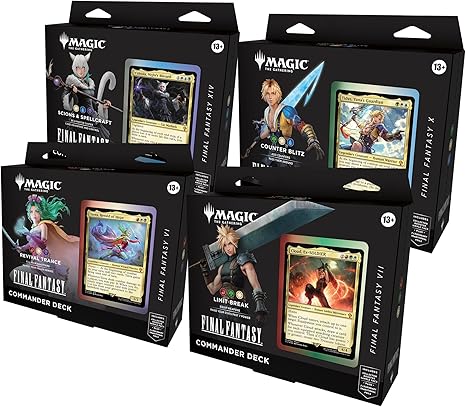
MTG: Final Fantasy Commander Deck Bundle (All 4 Decks)
Sirius Dice MTG Avatar The Last Airbender 55mm Spindown D20

MTG: Avatar The Last Airbender Jumpstart Booster Display

Magic the Gathering MTG: Marvel`s Spider Man Gift Bundle

Dragon Shield Sleeves - Classic Crimson

Ultra PRO MTG Play Mat Final Fantasy Version 2

Ultra PRO MTG Play Mat Final Fantasy Version J
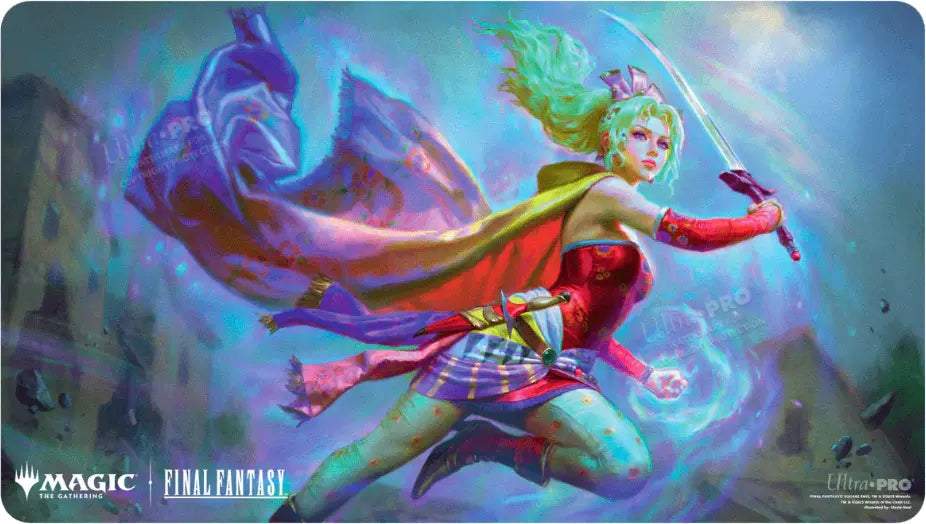
Ultra PRO MTG Play Mat Final Fantasy Commander C

Ultra PRO MTG Stitched Play Mat Mana 8 Mountain

Ultra PRO MTG Stitched Play Mat Mana 8 Plains

Dragon Shield Deck Box Deck Shell Midnight Blue

Monster Tube Prism Opaque Black (Play Mat Tube)

Ultra PRO MTG Play Mat Final Fantasy Version M
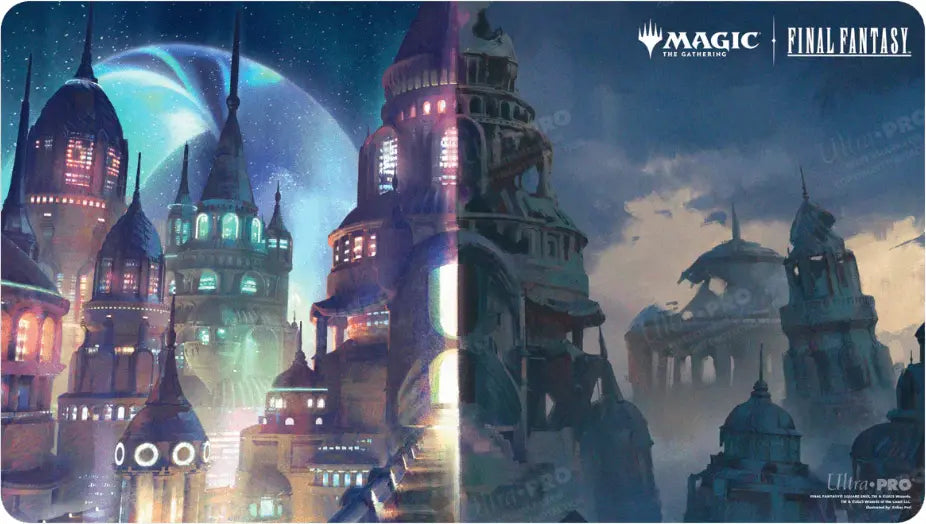
Ultra PRO MTG Play Mat Final Fantasy Commander G

Magic the Gathering Play Night - Every Wednesday 6-9pm

Dragon Shield Deck Box Deck Shell Shadow Black
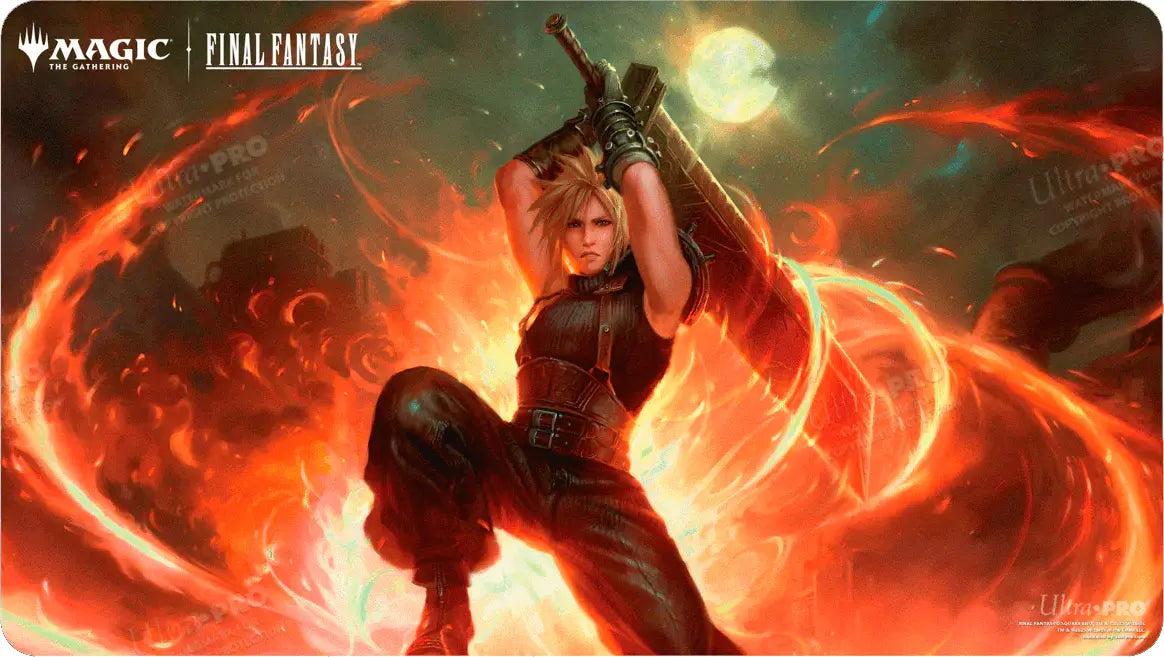
Ultra PRO MTG Play Mat Final Fantasy Commander A

Ultra PRO MTG Stitched Play Mat Mana 8 Lotus

Monster Tube Prism Matte Silver (Play Mat Tube)

Monster Tube Prism Matte White (Play Mat Tube)
Magic: The Gathering (MTG) is a collectible card game created by mathematician Richard Garfield and published by Wizards of the Coast. Since its inception in 1993, MTG has evolved into a complex and strategic game that combines elements of fantasy, strategy, and resource management. The game is played by two or more players, each acting as a powerful wizard known as a Planeswalker, who summon creatures, cast spells, and engage in combat to reduce their opponents' life points to zero.
At its core, MTG consists of a deck of cards, which players build according to specific rules and strategies. Each card represents a unique spell, creature, or artifact, and players must carefully select cards that complement one another to create a cohesive and effective deck. The game features five colors of mana—white, blue, black, red, and green—each representing different themes and strategies. For instance, white cards often focus on healing and protection, while red cards emphasize aggression and direct damage.
The game is structured around various formats, including Standard, Modern, Commander, and Draft, each with its own rules regarding card legality and deck construction. According to the latest statistics, approximately 38% of players prefer the Standard format, which allows for a rotating selection of cards from the most recent sets, while Commander, a popular multiplayer format, accounts for about 25% of the player base.
MTG has a rich competitive scene, with numerous tournaments held globally. The Magic Pro Tour and Grand Prix events attract thousands of players, showcasing the game's strategic depth and skill. In 2022, the total prize pool for competitive MTG events exceeded $10 million, reflecting the game's popularity and the dedication of its community.
In addition to competitive play, MTG fosters a vibrant community through local events, such as Friday Night Magic and casual game nights. These gatherings provide players with opportunities to socialize, trade cards, and participate in friendly competitions. The community aspect is crucial, as it enhances the overall experience of the game and encourages new players to engage with seasoned veterans.
Furthermore, the collectible nature of MTG cards adds an additional layer of interest. Rare and powerful cards can appreciate significantly in value over time. For example, iconic cards like the Black Lotus have been known to sell for upwards of $250,000 at auction, illustrating the potential for investment within the hobby.
In conclusion, Magic: The Gathering is not merely a game but a multifaceted experience that combines strategy, community, and collectibility. Its enduring popularity can be attributed to its intricate gameplay, diverse formats, and the strong connections formed among players. As the game continues to evolve, it remains a significant part of the tabletop gaming landscape.
- Choosing a selection results in a full page refresh.
!


